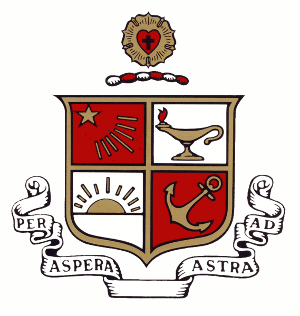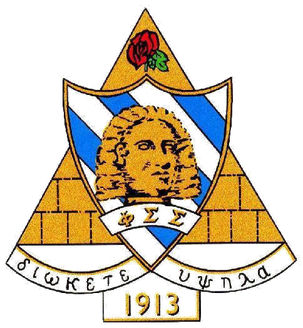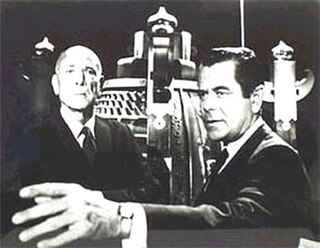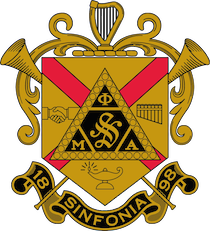Evangelicalism, also called evangelical Christianity or evangelical Protestantism, is a worldwide interdenominational movement within Protestant Christianity that emphasizes the centrality of sharing the "good news" of Christianity, being "born again" in which an individual experiences personal conversion, as authoritatively guided by the Bible, God's revelation to humanity. The word evangelic comes from the Greek word for 'good news'.

The Aryan Brotherhood is a neo-Nazi prison gang and an organized crime syndicate that is based in the United States and has an estimated 15,000–20,000 members both inside and outside prisons. The Southern Poverty Law Center (SPLC) has characterized it as "the nation's oldest major white supremacist prison gang and a national crime syndicate" while the Anti-Defamation League calls it the "oldest and most notorious racist prison gang in the United States". According to the Federal Bureau of Investigation (FBI), the Aryan Brotherhood makes up an extremely low percentage of the entire US prison population, but it is responsible for a disproportionately large number of prison murders.

Delta Sigma Phi (ΔΣΦ), commonly known as Delta Sig, is a fraternity established in 1899 at The City College of New York (CCNY). It was the first fraternity to be founded based on religious and ethnic acceptance. It is also one of three fraternities founded at CCNY.

Founded in 1925, The Brotherhood of Sleeping Car Porters and Maids, commonly referred to as the Brotherhood of Sleeping Car Porters (BSCP), was the first labor organization led by African Americans to receive a charter in the American Federation of Labor (AFL). The BSCP gathered a membership of 18,000 passenger railway workers across Canada, Mexico, and the United States.
The Ancient and Honorable Order of E Clampus Vitus (ECV) is a fraternal organization dedicated to the preservation of the heritage of the American West, especially the history of the Mother Lode and gold mining regions of the area. There are chapters in California, Nevada, Arizona, New Mexico, Colorado, Utah, Washington, Idaho, Oregon, Montana and Wyoming. Members call themselves "Clampers." The organization's name is in Dog Latin, and has no known meaning; even the spelling is disputed, sometimes appearing as "Clampus," "Clampsus," or "Clampsis." The motto of the Order, Credo quia absurdum, generally interpreted as meaning "I believe it because it is absurd;" is a Latin phrase popularly misattributed to Tertullian.
Clan na Gael (CnG) (Irish: Clann na nGael, pronounced[ˈklˠaːn̪ˠn̪ˠəˈŋeːlˠ]; "family of the Gaels") is an Irish republican organization, founded in the United States in the late 19th and 20th centuries, successor to the Fenian Brotherhood and a sister organization to the Irish Republican Brotherhood.

Phi Gamma Delta (ΦΓΔ), commonly known as Fiji, is a social fraternity with 139 active chapters and 13 colonies across the United States and Canada. It was founded at Jefferson College, Pennsylvania, in 1848. Along with Phi Kappa Psi, Phi Gamma Delta forms a half of the Jefferson Duo. Since its founding, the fraternity has initiated more than 211,000 brothers. The nickname FIJI is used commonly by the fraternity due to Phi Gamma Delta bylaws limiting the use of the Greek letters.

Phi Beta Sigma Fraternity, Inc. (ΦΒΣ) is a historically African American fraternity. It was founded at Howard University in Washington, D.C., on January 9, 1914, by three young African-American male students with nine other Howard students as charter members. The fraternity's founders, A. Langston Taylor, Leonard F. Morse, and Charles I. Brown, wanted to organize a Greek letter fraternity that would exemplify the ideals of Brotherhood, Scholarship and Service while taking an inclusive perspective to serve the community as opposed to having an exclusive purpose. The fraternity exceeded the prevailing models of Black Greek-Letter fraternal organizations by being the first to establish alumni chapters, youth mentoring clubs, a federal credit union, chapters in Africa, and a collegiate chapter outside of the United States. It is the only fraternity to hold a constitutional bond with a historically African-American sorority, Zeta Phi Beta (ΖΦΒ), which was founded on January 16, 1920, at Howard University in Washington, D.C., through the efforts of members of Phi Beta Sigma.

Beta Sigma Psi National Lutheran Fraternity (ΒΣΨ), commonly known as Beta Sig, is a United States social organization for Lutheran college men. Founded at the University of Illinois in 1925, the fraternity has more than 7,500 initiated members. It has twelve chapters, primarily in the mid-west, and over 300 undergraduate members.
While the traditional social fraternity is a well-established mainstay across the United States at institutions of higher learning, alternatives – in the form of social fraternities that require doctrinal and behavioral conformity to the Christian faith – developed in the early 20th century. They continue to grow in size and popularity.

Phi Sigma Sigma (ΦΣΣ), colloquially known as Phi Sig, was the first collegiate nonsectarian sorority to allow membership of women of all faiths and backgrounds.

Phi Mu Delta (ΦΜΔ) is a national fraternity founded on March 1, 1918, at the Universities of Connecticut, New Hampshire, and Vermont. The fraternity is focused on the ideals of democracy, service, and brotherhood.
The Armenian Brotherhood Church started within the Armenian Evangelical Church in the 19th century.

The A. Philip Randolph Institute (APRI) is an organization for African-American trade unionists, a constituency group of the AFL-CIO, that advocates social, labor, and economic change at the state and federal level, using legal and legislative means.

The Brotherhood of the Bell is a 1970 made-for-television movie produced by Cinema Center 100 Productions and starring Glenn Ford. The director Paul Wendkos was nominated in 1971 by the Directors Guild of America for "outstanding directorial achievement in television". David Karp wrote the screenplay based on his novel that had been previously filmed as a Studio One episode in 1958. This version aired as a "world premiere" CBS Thursday Night Movie.
Unami Lodge, One is the Order of the Arrow (OA) lodge of the Cradle of Liberty Council, Boy Scouts of America (BSA) and the founding Lodge of the OA, having celebrated its centennial in 2015. The current Unami Lodge resulted from the 1996 merger of Unami Lodge 1 and Delmont Lodge 43, caused by the merger of Philadelphia Council and Valley Forge Council. The chiefs of each lodge agreed to preserve Unami's rich history and traditions by retaining the founding lodge's name and number. Delmont Lodge's history, including its roster of Vigil Honor, Founder's Award, and David Fortunato Outstanding Service Award recipients, is preserved as part of Unami Lodge's history. The lodge's totem is the turtle, reflecting both the name of the animal (unami) in the Delaware language, but also its association with its peoples.
The March on Washington Movement (MOWM), 1941–1946, organized by activists A. Philip Randolph and Bayard Rustin was a tool designed to pressure the U.S. government into providing fair working opportunities for African Americans and desegregating the armed forces by threat of mass marches on Washington, D.C. during World War II. When President Roosevelt issued Executive Order 8802 in 1941, prohibiting discrimination in the defense industry under contract to federal agencies, Randolph and collaborators called off the initial march.

Phi Mu Alpha Sinfonia (ΦΜΑ) is an American collegiate social fraternity for men with a special interest in music. The fraternity is open to men "who, through a love for music, can assist in the fulfillment of [its] object and ideals either by adopting music as a profession or by working to advance the cause of music in America." Phi Mu Alpha has initiated more than 260,000 members, known as Sinfonians, and the fraternity currently has over 7,000 active collegiate members in 249 collegiate chapters throughout the United States.
The World Peace Foundation or WPF, created in 1910, is a philanthropic foundation for research into peace processes affiliated with The Fletcher School of Law and Diplomacy at Tufts University. Alex de Waal is the director as of 2021, having become director in 2011.
The Brotherhood of St. Andrew is an international lay Christian religious organization with historical roots in the Episcopal Church in the United States of America.











